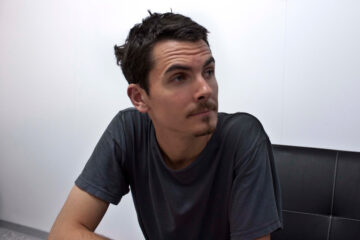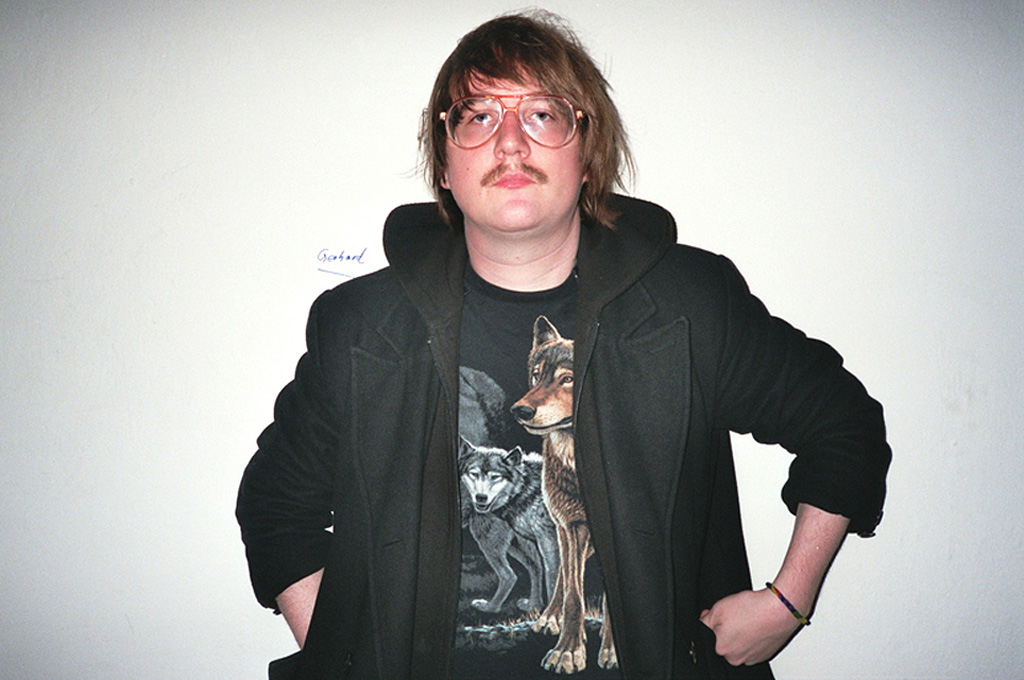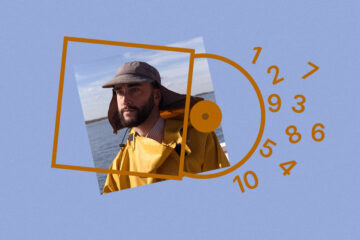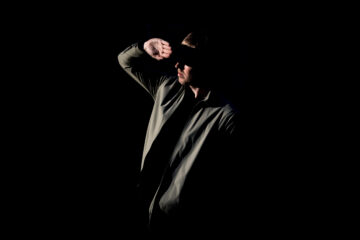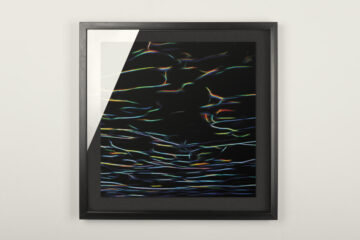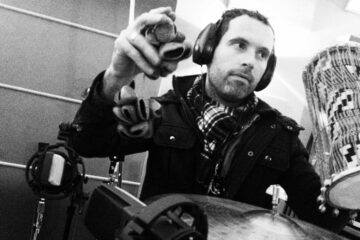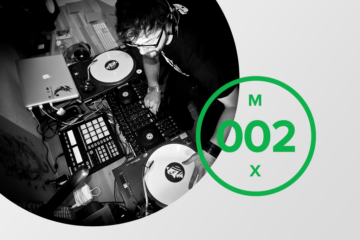Two years ago Hudson Mohawke dropped his album on Warp. Since the release of Butter the British producer from Glasgow has not disappointed his audience with the stuff he’s been putting out. BBC’s Radio One asked him to do an Essential mix for Pete Tong’s show directly after his release. He had blogs twitching with his remixes and is an amazing artist to see live. Ross Birchard caters to the taste of many crowds – Hip Hop, Electronic, Dubstep – he moves around amongst them with no limit. Heavy beats and dope production have become a constant part of his signature sound. Valentin Menedetter seized the opportunity to talk to him.
Which record got you stuck on music? If you think about the first record that you ever bought.
Hudson Mohawke: Well the first record that I ever bought was Pop. It was just top 40 shit that I was collecting when I was 6 or 7. I was just buying tapes – whenever I could save up the money basically. From there it was Rave music, like Hardcore Rave and Jungle. And then from that it was Hip Hop and more electronic stuff. But it started off with chart stuff.
Is there any record that sticks out?
Hudson Mohawke: The chart stuff that I was collecting wasn’t really speaking to me so I guess the first records that I really engaged with was when I started to buy those Jungle and Rave records. I used to get mixtapes on vinyl – actually recorded on vinyl for some stupid reason I don’t know why they thought it was a good idea. And there it was »Dreamskip« – a festival and they had a tape called Dreamskip 95. That was the first thing that I listened to all day every day until I fucked the vinyl by just listening to it too much.
In your early teenage years you got heavy into turntablism. How did that happen?
Hudson Mohawke: It happened because all the Rave and Jungle stuff I used to listen to – the way it was mixed was with loads of scratching and it was really rough and it wasn’t smooth mixing. It was nothing like that. It was really thrown together – it was more like party oriented and loads of little scratches and weird fast mixes. So I just started fucking around myself which was on a little belt drive Hifi – turntable. Just from that I taught myself how to basically scratch. And then I think I was at an HMV, for some reason they had a video on. It was A-Trak and he was 15 when he won. And they had a video of that – so when I saw this I didn’t know that there was any such thing as battles or competitions. I must have been like 12 years old.
Have you always been producing next do djing?»So when I signed the deal with them I didn’t submit any tracks to them for a year and a half afterwards. I just thought, †ºFuck I’m going to be on the same label like Aphex Twin or Squarepusher†¹. The whole idea of that was too much for me to take in.«
Hudson Mohawke
Hudson Mohawke: Yeah I was always working on my Playstation from I think around 1998.When they had the first music game come out on there because I couldn’t afford any hardware or even a PC for making music. So when this game came out I saw that this was my chance to do something. I was 12 years old and started messing around on the Playstation and started to make a lot of Jungle tracks and stuff like that.
When Ooops was released on Lucky Me, it was followed by the Heralds of Change Project and then later came Butter on Warp. Did the deal with a major label change something for you as a musician?
Hudson Mohawke: When I first signed it, it made me a lot more worried and a lot more self conscious that people were listening and that wasn’t a very positive experience for me because it put me off making music for a while. So when I signed the deal with them I didn’t submit any tracks to them for a year and a half afterwards. I just thought, †ºFuck I’m going to be on the same label like Aphex Twin or Squarepusher†¹. The whole idea of that was too much for me to take in.
So you felt a lot of pressure?
Hudson Mohawke: I did feel a lot of pressure for a while until I realized that when someone released a record on the label the artists weren’t thinking that they’re about to release a classical record. They just did their thing and they were signed to the label because it considered that they were good at doing their own thing. So I thought I have to do my thing here and if it works it works. And I guess it worked okay.
What was the first song that you finished from the album?
Hudson Mohawke: I don’t even know. So much of it was done in parts; I would do half of one track and then do half of another one and then three months later come back to the original one. So it was all sort of scattered all over the place. I didn’t really make all in one go really.
What does Lucky Me mean to you?
Hudson Mohawke: (Laughs) It used to be a local club night, which was around in Glasgow – it was really Hip Hop oriented. Lots of MCs, open mic – I would play instrumentals for all the rappers. I wasn’t really interested in anything else but Hip Hop and that was around the time I was doing the Dj parts. Like around 2001, 2002. It has grown into a sort of healthy local movement. There are quite a few different producers and Djs involved and it’s like a proper label now and it has put out some really good records this year. Some Lunice stuff, Jacques Greene and it’s just growing into this really nice movement from really nothing.
You’ve been doing a row of remixes throughout the last months – the most recent one was the one you did for Jamie Woon. Are you currently working on something?
Hudson Mohawke: Yeah, I’ve got an EP, which is actually supposed to be out now. But I’m really fussy about artwork and the artwork is taking a long time to get it right. That will be on Warp, and then there will be another Warp album early next year. The EP is done and mastered, but the artwork… It’s just taking a long time.


